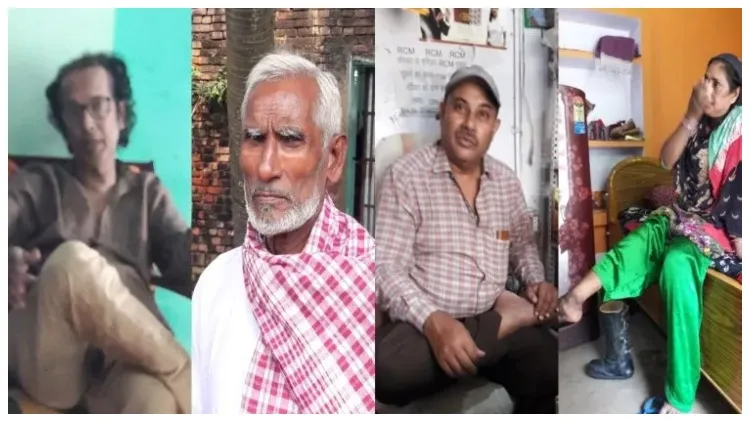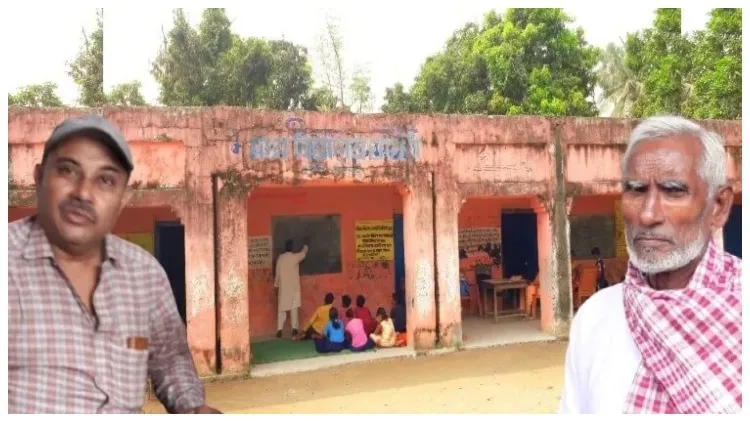
Rajeev Ranjan/Bhagalpur
Thirty-two years ago on Friday 27th October 1989, in Chanderi village of Sabour block of Bhagalpur district (Bihar) 60 Muslim men were murdered in cold blood.
Back then it was unthinkable that this ghastly incident since known as “Bhagalpur riots” would eventually see people realizing that violence and hate can become cyclic and help none. Today locals – Hindus, Muslims of all castes – shudder to think of killing each other and people openly say the riots break a society.
This reporter visited Chanderi to see the situation there. The village is located right at the spot where one crosses the Howrah-Patna railway line.
Chanderi Primary School, where a Maulvi is busy teaching students, is the first landmark of the village.
The Moulvi told me he is from neighbouring Rajpur village. Like many others, his family had also shifted to Rajpur from Chanderi after the 1989 violence. Only four families of Muslims continue to live in Chanderi village, he says.
Some families have constructed houses in Muslim localities like Habibpur, Barhpura, Shahjangi yet they continue to live in Chanderi.
Sirajuddin says times have changed and though people have forgotten that dark day, yet the fear of the unknown lurks in his heart. “The circumstances have changed; people are also migrating in the pursuit of employment. But for those who have experienced that truth (Violence), it is difficult to deal with the hurt and fear generated inside our minds,” he said.

Chanderi Primary School, Chanderi
Sirajuddin however says one has to learn from the experiences of the past.
Mallika Begum, a resident of Chanderi, was attacked on her right leg by the rioters and it had to be amputated to save her She was given the job of carrying files from one desk to another in the office of the District Collector. However, later she was fired for being illiterate.
Back then a soldier hailing from Poonch in Jammu had hogged the limelight by marrying Mallika. However, after fathering their two children, he left her and married a second time, and now lives in Poonch.
Mallika Begum, who has endured so much pain and difficult circumstances says she has overcome the fear of riots as the situation in society has changed. She says of late she has sensed the change in people’s attitude and behaviour. She firmly believes that those who indulge in, and promote violence are “victims of illiteracy.”
“I believe that an ideal society will be formed only when everyone's thinking is the same. Due to illiteracy and deprivation, people distance themselves from each other,” says Mallika.
She says that the government’s financial help is not enough for her to live her life. Politicians, she says, take advantage of peoples’ differences, and therefore people must build a society by understanding each other's compulsions.
Actor Praveer Rai, who has produced a documentary film on Bhagalpur riots titled Ek Aur Sach under the banner of Aman Biradari, an organization led by former bureaucrat Harsh Mander, says that the circumstances under which the riots happen are not repeated yet the coming generations do not even want to learn much from the past.
Praveer says that when he was working in Chanderi for the film, the Tata company had built 35 houses for the riot victims. However, due to fear, people have left the houses allotted to them and are living elsewhere. " It is obvious that violence forces us to evaluate ourselves, so new avenues are also created,” he said.
Kamal Kumar Das, a retailer, says that a violent incident like a riot does not benefit anyone. It blocks the avenues and development of the city; society is pushed back. “Right now we are trying to recover from the impact of Corona (pandemic), but there is a fear in one corner of the mind that the third wave of maybe more terrifying than the riots.”
